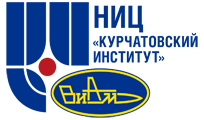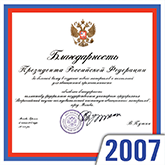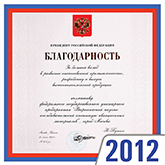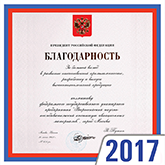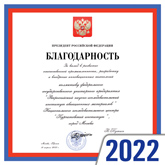ALL-RUSSIAN SCIENTIFIC RESEARCH
INSTITUTE OF AVIATION MATERIALS
INSTITUTE OF AVIATION MATERIALS
+7(499) 261-86-77
admin@viam.ru
VIAM: ROUND TABLE “AT A CROSSROAD OF SCIENCE, EDUCATION AND INDUSTRY”
VIAM: ROUND TABLE “AT A CROSSROAD OF SCIENCE, EDUCATION AND INDUSTRY”
On January, 21, 2016 a round table titled “at a crossroad of science, education and industry” was held at the All-Russian Scientific-Research Institute of Aviation Materials (VIAM).
Leaders of the main Russian enterprises of aviation, nuclear and space industrial fields, scientific and research, academic institutions, as well as representatives of federal authorities of executive and legislative power, subject ministries and departments took part in the round table.
Academician of RAS, Evgeny N. Kablov, Director General of VIAM, President of the Association of state scientific centers opened the event. In particular, he pointed out, that: “Under present conditions for the successful implementation of the National Technological Initiative it is very important to determine major scientific and technological projects and priority directions of innovative development, which will give a practical result.” “In turn, clearly organized cooperation and coordination, as well as definition of areas of responsibility will increase the effectiveness of groundbreaking projects and competitiveness of our products.” – Evgeny Kablov pointed out. According to him, digital and additive technologies and also robotics play the leading role. Development of “green” technologies is of great interest.
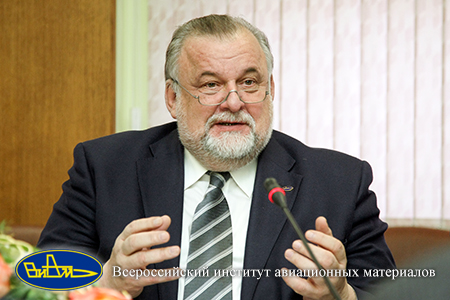
According to Evgeny Kablov, today it will be reasonable to refuse from a support of narrowly targeted programs in favor of full-scale complex projects, and in such event, a coordinating component can be settled by consortia, which will represent temporary unions of independent enterprises and organizations: institutions of RAS, universities, SSC, industrial enterprises, as well as business entities. At that, it is necessary to choose a leader for each consortium and to provide him with necessary financial, organizational and other powers, including high level of personal liability for an implementation of the project.” – he pointed out.
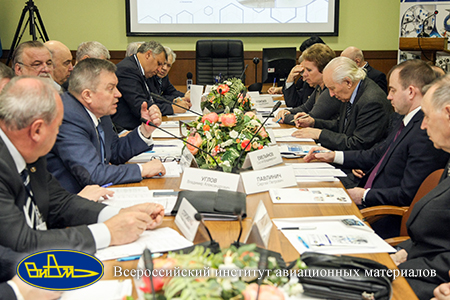
As Evgeny Kablov declared, “it is necessary to solve a number of challenges in the education system of Russia in order to address a problem of shortage of highly qualified personnel. In particular, it is almost complete lack of practical value of scientific work, carried out by the Russian universities, lack of flexibility, statics of training programs, as well as unpreparedness of graduates for practical work. He also said that, “According to the report “Towards 2030”, published by UNESKO, the scientific potential of Russia is currently at an extremely low level. “We should improve the situation”, - Evgeny Kablov pointed out.
In turn, Sergey V. Yemelyanov, Director of Department for aviation industry of the Ministry of Industry and Trade of the Russian Federation said in his welcoming speech, that the title of the round table accurately conveyed the essence of discussed issue. “Innovations are developed, namely, at a crossroad”, - the representative of Minpromtorg of Russia reminded. According to him, the symbiosis of science, education and industry will have to rebuild a real sector of economy. Sergey Yemelyanov also wished the participants of the round table successful, efficient work and new constructive initiatives.
Academician of RAS, Vladislav Ya. Panchenko, Chairman of the Russian Foundation for Basic Research reported about the activities and prospective directions of RFBF. In particular, he informed that about 250 thousand people had been participants of RFBF grants for the 25-year history of the Foundation. “We carried out a series of oriented fundamental researches, aimed at achieving specific technologies and technical solutions, including Arctic and biomedical researches,” – Vladislav Panchenko pointed out. He also reported about the joint work with VIAM on several projects in the field of chemical sciences and materials science.
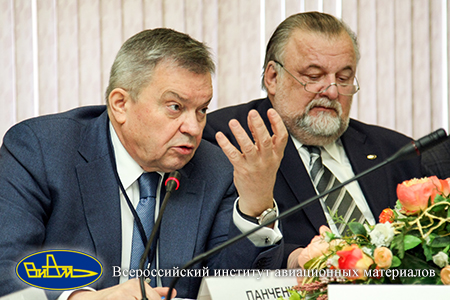
Alexander A. Inozemtsev, General Designer of OJSC “Aviadvigatel” reported about a consolidation of industry and science as exemplified by implementation of the project PD-14 engine, which had been primarily planned for the MC-21 plane, but in fact, was provided for the entire range of national civil aviation.
“The basis of any joint work should be a promising business idea, which will bring together all participants of the project from representatives of academic science to factory workers”, - Alexander Inozemtsev pointed out. “Such business idea formed the basis for development of new PD-14 engine”, - General Designer added. “Several design bureaus headed by OJSC “Aviadvigatel”, factories, industrial research institutes and universities have united in a project for the first time since the Soviet Union. They work for a business idea”, - Alexander Inozemtsev said. He emphasized that VIAM had produced a “combat” detail of PD-14 engine – a front combustion chamber swirler from domestic powders, using additive technologies. This detail operates at extremely high temperatures and stands literally in the hottest place, that`s why it is under a high load,” – General Designer pointed out. Alexander Inozemtsev proposed to use the experience of such joint work for the next breakthrough projects of Russian industry.
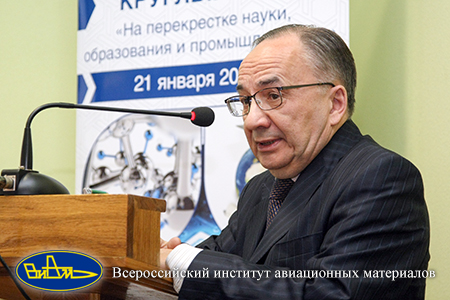
Anatoly A. Tashkinov, Rector of Perm National Research Polytechnic University reported about a practice-oriented training of engineers for aviation and space industry. “I maintain the organizational and methodological support and, most important, the presence of a business-idea in the organization of technologic platforms and establishment of consortia. A selection of talented students, as well as a participation of teachers in researches and developments are the main factors for universities in this process”, - he pointed out.
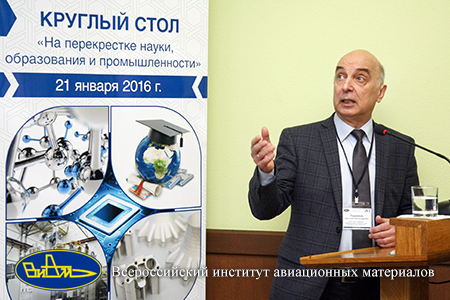
Besides, Anatoly Tashkinov reported, that PNRPU took the third place for a participation in the programs of government corporations, and that was very high rate. “it is not a secret, that the basis for professional growth of scientific employees and researchers at the university is to participate in large projects”, - Rector said. According to him, it is necessary to pay special attention to practice-oriented education for high quality training of students. “One of the best practices of our university is the establishment of a task force with a degree in “Aviation engines”, which includes two-thirds of students with mark A in physics and mathematics”, - Anatoly Tashkinov pointed out. He also said, that “in his view, additive technologies are the key areas of development of domestic industry, therefore programs have been set up for all main directions of personnel training in this field at PNRPU”.
“There are not enough engineers and technologists in Russian production,” – Pavel A. Storozhenko, corresponding member of RAS, research advisor and the first deputy of Director General of JSC “GNIIChTEOS” declared. In his report, he outlined the problems of education, directly affecting the chemical industry. “Universities association has led to the fact that field-oriented academic departments are closing and today, we have virtually lost all areas of chemical engineering. That fact raised a question, what specialists would come to work on production,” - Pavel A. Storozhenko pointed out.
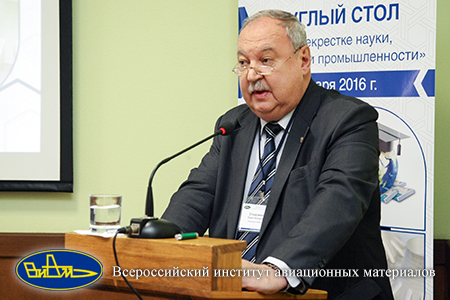
Cand. of Sc. (Tech.) Olga G. Ospennikova, Head of SRB VIAM reported about the VIAM`s experience of cooperation with regions of the country, state corporations, scientific organizations and industrial enterprises. In particular, she informed, that the institute cooperated with 37 institutes of RAS, 11 subjects of the Russian Federation, especially emphasized Bashkortostan, Tatarstan, Mordovia, the Republic of Sakha (Yakutia), Samara and Ulyanovsk regions.
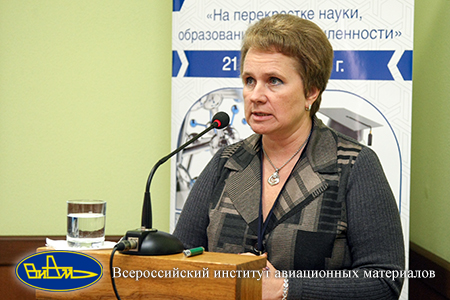
Besides, Olga Ospennikova noted a joint work with United Engine Corporation. “VIAM signed a concept of cooperation with UEC, the implementation of which is aimed to ensure competitiveness of Russian engine building in national and world markets,” – she pointed out. According to her, the bright example of collaboration within the framework of consortium is the work on implementation of additive technologies to produce and repair formed parts of gas turbine engines of advanced PD-14 engine for MC-21 plane. “Thanks to cooperation with ILIT RAS and SPbPU, the specialists of VIAM has produced a detail of advanced aviation engine PD-14 – a front combustion chamber swirler by using additive technologies for the first time in Russia. The work was carried out in the interests of the industrial partner OJSC “Aviadvigatel” using fundamentally new additive technology, that allowed to reduce labour intensity of its production by 10 times and to increase coefficient of utilization of metal by 3-5 times,” – Olga Ospennikova added. As was noted by Head of SRB VIAM, “additive technologies should become a dominant of national technologic initiative and provide conditions to a transition of industry to production technologies of new generation that fundamentally change the whole technological waves and entail changes of all production cycle.”
Nikolai M. Mantsevich, representative of JSC “Science and innovations” (SC “Rosatom”) reported about the innovative development of State Corporation “Rosatom” in the field of education and science. He pointed out, that “the training of qualified engineers is the most important question, that can be solved only through close cooperation between representatives of scientific society, universities and industry. We carry out joint research work with subject oriented universities, cooperate with engineering centers, which are actively developing at higher educational institutions, we have developed a knowledge management system for training and upgrade qualification of personnel”, - Nikolai Mantsevich said.
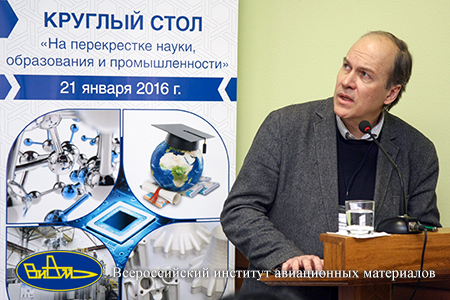
In the ensuring debate, the main directions for consolidation of efforts of scientific, educational organizations and industrial enterprises of the country were considered to implement the National technologic initiative within the priority directions of science and technology. It was noted, that it was particularly important to implement tasks, set by Vladimir Putin President of RF in his message to the Federal Assembly of RF, which included national security protection, development of branches of new technological waves, removal of critical dependence on technologies and industrial products of the European Union, USA, Japan. Attention was paid to the protection of intellectual property, as well as the realization of inventions of Russian scientists.
As a result of the work, a draft of joint decision was adopted.
In conclusion, at the suggestion of Academician of RAS V.Ya. Panchenko, Chairman of the Council of RFBR, the participants of the round table delegated to E.N. Kablov the right to sign an appropriate appeal (adding the decision of the round table and the corresponding protocol) to V.V. Putin, the President of the Russian Federation.
It should be remembered, that the round table was held with the support of the Association of state scientific centers “NAUKA”, Technology platform “New polymer composite materials and technologies” and Technology platform “Materials and metallurgical technologies”.
***
A welcoming letter from Alexander B. Povalko, deputy Minister of education and science of the Russian Federation was received to the address of the participants of the round table. In particular, the letter says, that “the holding of this meeting, dedicated to a discussion of issues that hinder to resolve tasks on implementation of National technological initiative set by the President of RF, is an important and timely event, contributing to economic development of the country, ensuring of competitive advantages, improvement of the social welfare and quality of life of the population. It is noteworthy that the event is organized on the basis of the All-Russian Scientific Research Institute of Aviation Materials – the largest Materials Research Center of Russia, having unique research equipment and human resources. The Implementation of the National Technology Initiative is aimed at promoting the development of promising new markets on the basis of high-tech solutions that will determine the development of the economy in 15-20 years, and the achievement of Russian global technological leadership in the long term. The initiative should be carried out in the most favored nation treatment within the timely establishment of the factors, affecting significantly on the quality and timing of implementation of activities under the Roadmap. In connection with this, the round table is an excellent platform for constructive dialogue between specialists, aimed at identifying problems to implement the National Technology Initiative and to make concrete proposals to resolve the issues. I wish the participants of the round table interesting and fruitful exchange of views. Let this meeting will be another step to further development of the country's economy and strengthen its technological sovereignty".
***
On the threshold of the round table, some participants emphasized importance and relevance of the event.
Academician of RAS, Oleg N. Favorskij
- In my opinion, VIAM is a great platform for discussion of such important theme, because the institute has an opportunity to develop domestic industry. As we know, any construction begins with the creation of materials. Evgeny N. Kablov has managed to maintain the institute in the 90s, when a number of applied institutes closed and he promoted to its further development. It is also encouraging that, fortunately, a system of training engineering personnel is preserved at VIAM, developed in the middle of the last century at MIPT.
I hope, that our debate and proposals would help to draw the attention of the government to that fact, that only development of high-tech industry will be able to lead our country out of economic crisis.
Valery I. Bukhitiyarov, corresponding member of RAS, Director of the institute of Catalysis, chief scientific secretary of the Siberian branch of RAS:
- The theme of the round table, devoted to the interaction of science, industry and education, is very actual. It is obvious that science is the productive power of society, which should help to solve the problem of modernization of the domestic industry, and only then the Russian economy will recover and reach new frontiers. It is obvious that this problem cannot be solved without highly qualified personnel. The interaction of three parts of the scientific and educational innovative complex is extremely important, not only in Moscow but also in the regions.
Academician of RAS, Alexander A. Berlin, director of the institute of chemical physics:
- I want to express my gratitude to VIAM for the organization of such an important and useful discussion. I hope, Evgeny Kablov can send information concerning the reached by us decision to the leadership of the country, because there are a lot of problems in our field, that require rapid solution. For example, one of them was the shutdown of chemical institutes in the country and, as a result, that caused enormous damage to chemical engineering science.
Evgeny P. Mayanov, director of JSC “NIIgrafit” and OJSC “Giredmet” of SSC RF:
- I am very grateful to ??VIAM for the idea "to gather at the crossroad." We are waiting for an interesting exchange of views and development of specific proposals for the implementation of the National Technology Initiative. This is all the more important that a number of federal government programs completed in 2015, and now a new "era" of technological development has begun. By the way, we work closely with VIAM, and now, for example, we are jointly engaged in the creation of prefabricated arch type bridge structures using carbon fibers.
Aleksey V. Dub, the first deputy of Director General of the management company “Science and innovations” of SC “Rosatom”:
- The need for consolidation of science, education and industry has further increased in today's difficult economic situation. I hope that the today`s reached solution will help the country's leaders to understand what kind of mood prevails today in the scientific community. It is no coincidence, that our debate is taking place in VIAM: we respect Evgeny Kablov as chairman of the Association of State Scientific Center "NAUKA" and we know that VIAM carries out scientific researches and solves the most important tasks in the field of education.
